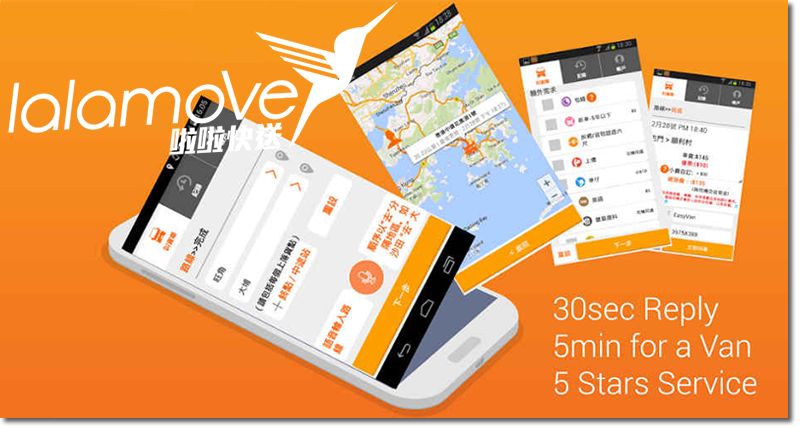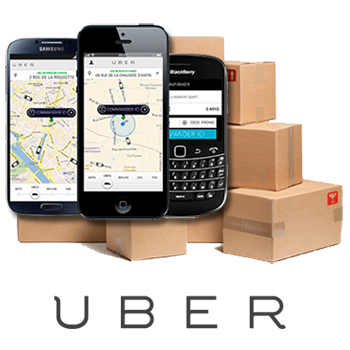With the holiday season now behind us, it’s time to reflect on just how successful major retailers have become in their quest to achieve true omni-channel fulfillment.
This quest to fulfill all orders from one set of inventory and assets has become something of a holy grail for retailers, as has the attempt to provide consumers with instant gratification in the form of same-day or even same-hour delivery. And that’s where the rapid rise of Uber seems so relevant.
Now available in more than 200 cities worldwide, the Uber smartphone app enables customers to request rides and then sends these trip requests to Uber drivers. Customers use the app to track their reserved vehicle’s location and pay for the ride. The connections are made in a matter of minutes, almost instantly fulfilling the customer’s desire to be driven to the requested destination, avoiding all of the well-known inadequacies of traditional taxi service. To say that Uber has been successful is an understatement. The company is now valued at more than $40 billion and has been the subject of protests and legal actions by countless taxi companies and drivers, and the governments that regulate them.
Among all major retailers, Amazon appears most intent on replicating an Uber-like experience for its customers. According to a Dec. 18 article titled “Amazon Unveils One-Hour Delivery Service” in The Wall Street Journal by reporters Greg Bensinger and Chelsey Dulaney, “Amazon.com Inc. rolled out its Prime Now quick-delivery service … starting with one zip code in Manhattan.” As Bensinger and Dulaney explained, “After downloading the Amazon Prime Now mobile application, customers can search for the items they need and order them through the app. Amazon then dispatches a bike messenger with goods to the customer’s door.”
More than 25,000 items are eligible for the program, which charges $7.99 for delivery within one hour and is free for delivery within two hours. At least in Manhattan, Amazon has created a user experience every bit the equal of Uber.
But will other major retailers be able to keep pace with such rapid innovators? For Wal-Mart, Target, Macy’s and the like, the secret to their success might just be in their ability to perfect omni-channel fulfillment from their thousands of store locations. While Amazon has its network of more than 135 highly automated distribution centers, Wal-Mart has its more than 4,000 stores located within a five-mile radius of approximately 60 percent of the U.S. population.
According to an article titled “Can Wal-Mart Clerks Ship as Fast as Amazon Robots?” in the same edition of The Wall Street Journal, reporters Shelly Banjo, Suzanne Kapner and Paul Ziobro write, “After two years of falling traffic, Wal-Mart has put some of its cavernous stores to use as mini-distribution centers for online orders. The 83 Supercenters that are shipping out online orders now handle more than a fifth of the goods bought on walmart.com.”
In short, the battle between major retailers to make the “last mile” experience nearly instantaneous for customers continues apace and will only accelerate in the coming year. As the savvy, smartphone app-enabled consumer becomes even more demanding (and perhaps spoiled) by Uber-like brand experiences, retailers will find a way to deliver instant gratification. Could a mash-up between Uber and one of the major retailers be in the offing?
Using Uber drivers to pick up and deliver merchandise from retail stores doesn’t seem like much of a stretch to me.
‘Uber For Logistics’ Startup Lalamove Lands $10M To Expand In China And Southeast Asia

Lalamove, an Uber-like service for logistics, has raised $10 million to expand its presence across Asia, where it already operates in six cities.
The company, which began life in Hong Kong in December 2013, offers iOS and Android apps that allow customers to move items across a city using its network of ‘regular’ drivers. Its business model is basically akin to an ‘Uber for logistics’ since anyone with a valid license and car can sign up to be a driver.
The $10 million round is led by China’s Crystal Stream Capital, and it includes participation from Geek Founders, Mindworks Ventures, Sirius Venture Capital and Aria Group. Lalamove said a number of unnamed individual investors also took part.
Executive Blake Larson told TechCrunch in an interview that the money will be used to strengthen its position in its existing markets: Hong Kong, Singapore, Bangkok, Taipei and - as of last week - Guangzhou and Shenzhen. The capital will also be used to “further penetrate” China and enter more parts in Southeast Asia.
Larson said Lalamove is planning to expand into “the most obvious” cities there.
“Last mile logistics booming in Southeast Asia. We find the region interesting because it is still so fragmented… but any time there are these challenges there is a higher reward for solving them,” he added
In China, Lalamove has joined the growing legions of on-demand startups to tap WeChat after it made its service available inside the Tencent-owned messaging app. Uber rival Didi Dache saw plenty of success after putting its taxi hailing service into WeChat, as have other food delivery and retail services.
“This year is about proving that our model works in different cities,” Larson, who leads Lalamove outside of China, added. The former Rocket Internet executive explained that the company will raise more capital in 2015 but is “always open” to hearing from potential new investors.
Lalamove, which is known by its original name EasyVan in China and Hong Kong and has over 60 staff, is rivaled fellow Hong Kong startup GoGoVan. GoGoVan raised $6.5 million round and took an additional $10 million investment from Chinese social network Renren last year.
Lalamove embarked on its expansion late last year, but GoGoVan is still to branch out. The company’s U.S.-educated founders recently revealed plans to move into Japan, China and Southeast Asia this year.
Source: TechCrunch
Related: ‘Uber for Logistics’ is Already Happening in Asia, and Uber is Getting Left Behind

The Whimsical Circus of China’s Bike Peddlers

Article topics
Email Sign Up

















